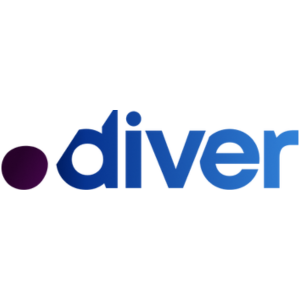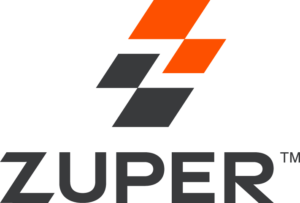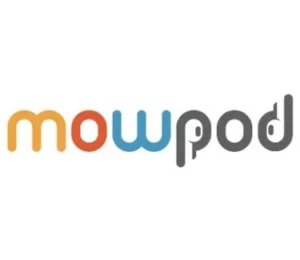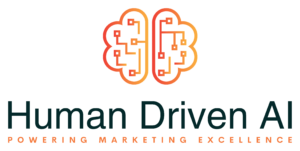Using technology for empowerment — Jennifer Byrne
Jennifer Byrne
Formerly employed by Microsoft

- Part 1 Using technology for empowerment — Jennifer Byrne
- Part 2Navigating non-traditional career — Jennifer Byrne
- Part 3The future of work — Jennifer Byrne
Show Notes
Quotes
-
“I started out in the cybersecurity space in the late 90s working for government clients and made my way around the corporate environment working from engineering, sales, business development, some corporate strategy jobs, and ended up at Microsoft to also work in a cybersecurity domain and then moved into a CTO role. A lot of the way I talk about is the way you navigate a non-traditional career because I have one, and ended up working in the US Division of Microsoft working with customers who were trying to figure out how they could make the most of the technology that was in front of them.” - Jennifer“I consider my career path non-traditional because I didn’t start out in tech. I actually started out in the nonprofit world, social services specifically and in my early years, I thought that was what I was going to do for the rest of my life. I have a degree in Psychology and felt that was what I needed to do.” - Jennifer“For some practical reasons, I made the move to technology and learned to love different aspects of that. I learned a lot of different competencies in those roles and I started out in engineering in a very traditional role and decided that while that was great, there were other fun things to do in that domain so I moved into a lot of other different competencies and while I loved the domain, what kept me interested was the opportunity to challenge myself and learn different skills so that’s how I navigated what other people would think is an unlikely path.” - Jennifer“There were very few universities at the time that offer computer science degrees. There wasn’t a lot of tech talent but there was a huge need because in the late 90s and early 2000s is when everything is becoming truly digitized and it was a bit of an inflection point in the market. I was able to leverage a lot of skills despite the fact that I didn’t have a 4-year degree in computer science.” - Jennifer“Specifically, what I mean is that, in the nonprofit world and across some of the other jobs that I had, I have learned leadership skills, good communication skills, and I had good business skills. It turns out that to be good in technology, you don’t only need to have the technical skills but you also have to be able how to apply them to actual problems.” - Jennifer“When I made the move from the nonprofit world to technology, I went to a night school for a year and learned technical skills. Halfway through that year, I had an instructor who was also a network engineer in a tech company and he asked me if I’m interested to work for a part-time job as a network admin and at the time I was very interested. I had two kids and made a career change so any job was good.” - Jennifer“What’s more fascinating to me is not the technology itself, it’s how it is applied to particular problems.” - Jennifer“I started at Microsoft as the Chief Security Officer for their worldwide public sector group. I got there because I got a background in security and a really broad set of skills in that domain where I understood the technical challenges and the business challenges that companies have trying to solve their security problems and that’s what Microsoft was looking for. Somebody who could be an outward-facing evangelist for Microsoft and convincing customers that it was a secure platform.” - Jennifer“What you quickly realize as soon as you’re outside the team that is actually touching the technology every day, technology roles are about making sure you understand how to apply technology to problems in the world.” - Jennifer“What is it like to be a CTO of Microsoft’s US Division? You have to start to really think in a much more futuristic and visionary way because you have a responsibility for setting a visionary strategy that a lot of other people will follow and people are relying on you to make the right decisions.” - Jennifer“I joined Microsoft at the time where Microsoft’s sole vision was to rebuild trust with the market that it serves and it needed to do that in an era where it’s also trying to make sure that its customers were going to adapt to the public cloud. It was quite a hefty challenge.” - Jennifer“I came from a security perspective and for decades, Windows was the favorite thing to hack and it was a big target for the cybercrime industry. And yet, at the time, Microsoft was trying to openly transition. When I joined as a Security Officer, my job was to spend time with governments around the world trying to convince them that Microsoft’s public cloud was a trustworthy place for them to place their data.” - Jennifer“By the way, that was in the era of Edward Snowden and Wikileaks and it was a big conversation whether or not the US government would be able to demand access to data within the Microsoft cloud and what would Microsoft do were that to happen.” - Jennifer“As I moved into the CTO role which was much broader, the trust conversation still showed up but in a different way because then it was about establishing trust with customers who weren’t as concerned about data in the public cloud but if Microsoft had the ability to truly understand what they were trying to do. For example, you are trying to transfer your supply chain from paper and clipboard and conveyor belts to something that is fully automated. That’s a live or die decision that companies make which is a huge investment in technology.” - Jennifer“Leaving the C-suite, you get rid of one kind of stress and take on another kind of stress. You get rid of the stress of having a lot of shifting demands, and that ‘always on’ mentality and what you take on is more existential stress around what do I do, or am I doing something that matters.” - Jennifer“The last year at Microsoft, I got increasingly involved in some projects that were about creating digital empowerment at a community level and the reason why I was doing that was because one of the things a lot of the big tech companies are focused on is digital skills. That’s usually the downward pressure in the adoption of technology. It isn’t that the technology doesn’t exist, there’s AI everywhere for any kind of problem you have, it’s that you don’t have many people who know how to use it. So the skills question kept coming up.” - Jennifer“If you want broader adoption of technology, you have to talk to a lot of people, and then what you find when you find those conversations is that there is such a thing as a digital divide just as there is a socio-economic divide. There is a bit of technology have and have-not.” - Jennifer“I had this personal realization that for 20 odd years, I had gotten very, very good at evangelizing all the wonderful things that technology could do, all the big intractable problems that were never solved until technology came on, and what I had not done was think about the unintended consequences of broad technology adoption which is that, if you don’t have technical skills you might not be qualified for even a job you have right now.” - Jennifer“I think that whenever you are in a minority class, you learn resilience and you also learn to listen to your own voice because you might not just have a lot of people who are like you. Those are tough lessons and they were harder in the beginning of my career. It was very different then as well so I had to persevere through a handful of glass-ceiling moments.” - Jennifer“For sure, there were moments that I had felt very alone because, in fact, I was the only woman in the room. Or I felt like there was a little bit of bias and by the way, bias when it shows up in a workplace, we hear about the very obvious scenarios or instances of it because they make the news.” - Jennifer“My view is that bias is almost always very covert. It’s not what people say to you when you’re in the room. It’s what people say about you when you’re not in the room and what that means is that you’re never really sure. Did I get passed over for a promotion because I’m a woman? Or because I’m a mom and I have two kids at home? I’ll never really know so you do have to learn how to judge yourself with your own yardstick and that makes you strong.” - Jennifer“I would also say that there were probably opportunities or instances in my career where being a woman played into my favor. One of the best advice I got from a mentor was when McAfee had been acquired by Intel and I was a Senior Director and I was trying to get to the next level which is the VP. My mentor said, ‘You know what? You’re trying to compete in a pond full of fish that are just like you because you’re in cybersecurity. If you want to be different, go work in a company where there aren’t a lot of cybersecurity people and that was one of the reasons why Microsoft was so interesting to me.” - Jennifer“It’s a story about leveraging what makes you unique and in some respects, being a woman did make me unique in certain roles and I did get a second look as there was a little curiosity about, ‘how did she get here?’ If you have that moment and you can leverage that moment really well, it can actually work out well for you and your career.” - Jennifer
- Part 1 Using technology for empowerment — Jennifer Byrne
- Part 2Navigating non-traditional career — Jennifer Byrne
- Part 3The future of work — Jennifer Byrne
Up Next:
-
Part 1Using technology for empowerment — Jennifer Byrne
In today’s episode, Jennifer talks about navigating a non-traditional career in technology, how coming from a different perspective paved the way for her leading prominent technology organizations and eventually realizing some unintended consequences of broad technology adoption and what she can do to alleviate the very real digital divide. Jennifer also becomes a bit more personal about the gender impact she experienced in the male-dominated space of the tech industry and how she leveraged the uniqueness of her position.
-
Part 2Navigating non-traditional career — Jennifer Byrne
In this second episode with Jennifer, we talked about the trends in the future of work and how technology is already infused in almost any job and how we can utilize technology to solve the problem of job losses that it created. Ben and Jennifer also talked about how we can re-engineer the workforce in the face of rapid technology advances and the right mindset in using a global and local workforce.
Play Podcast -
Part 3The future of work — Jennifer Byrne
In our third and final episode with Jennifer, we talked about how technology can make an individual feel empowered and reinvent yourself through online education, how personal branding can help you in your career path and what’s in store in the future of technology and the workforce.
Play Podcast










